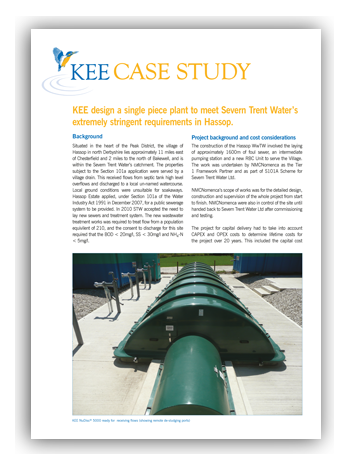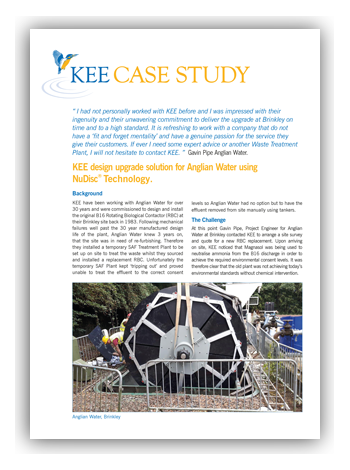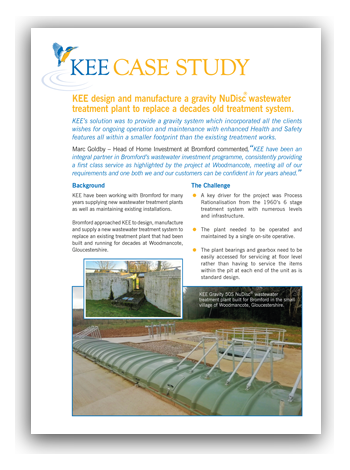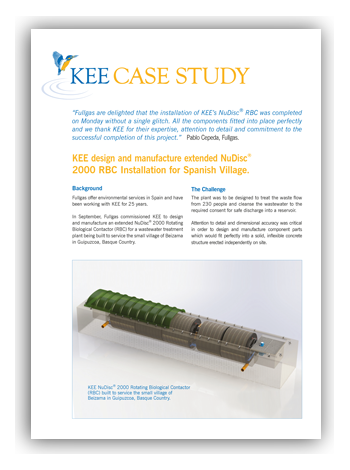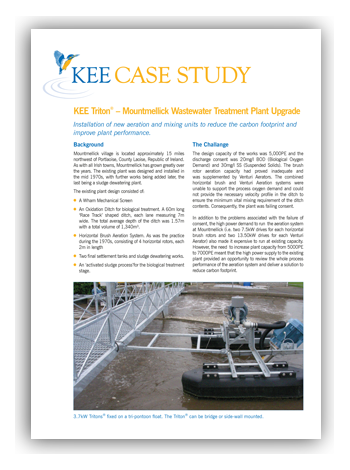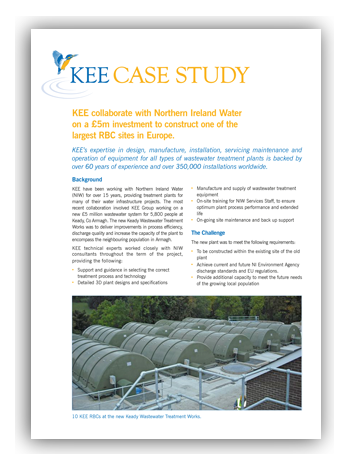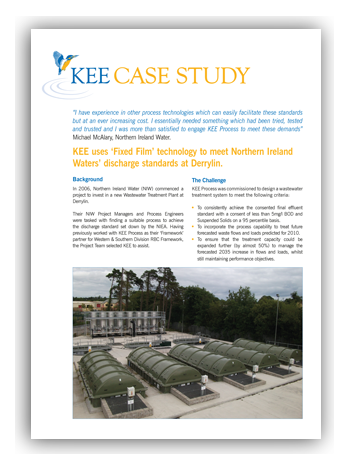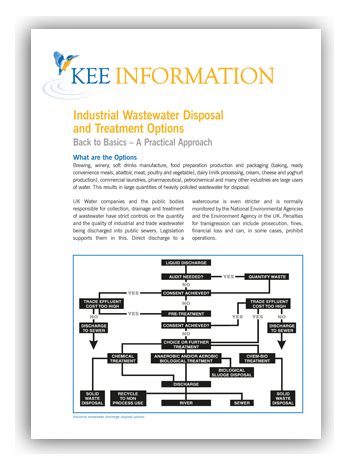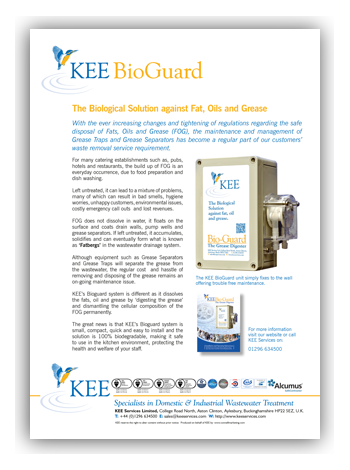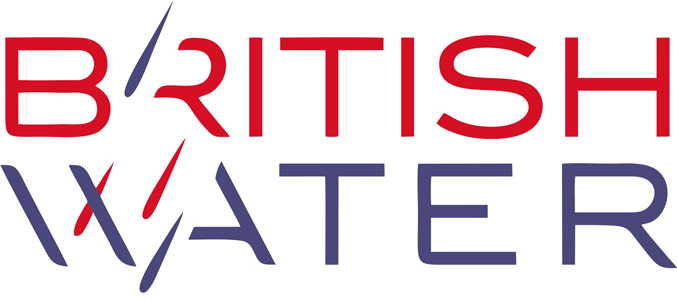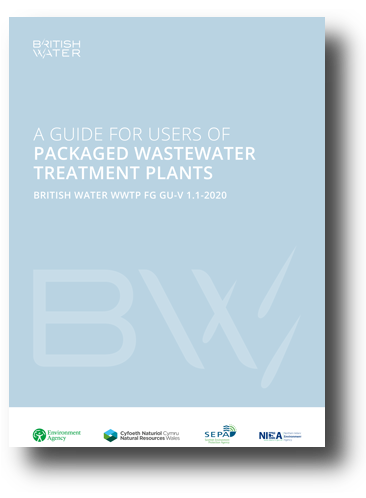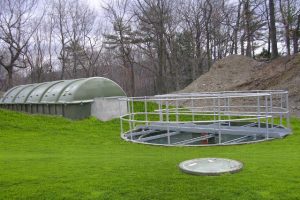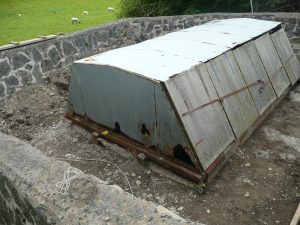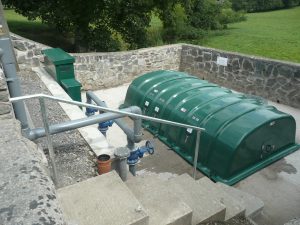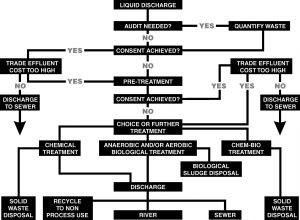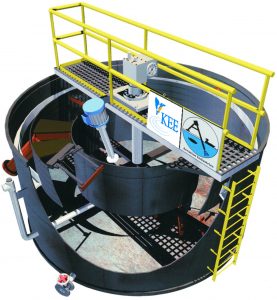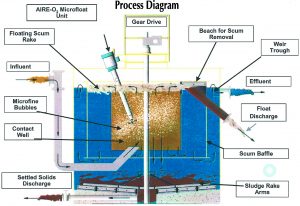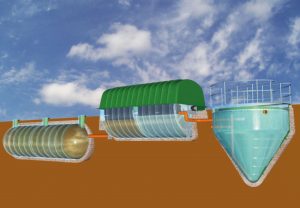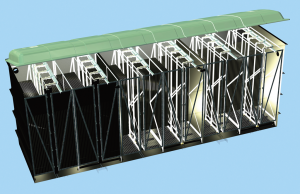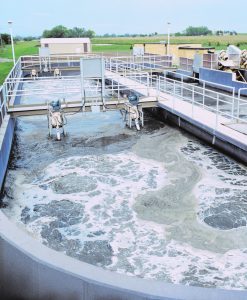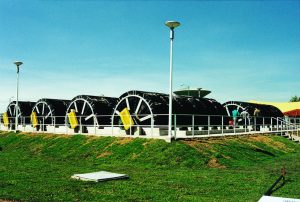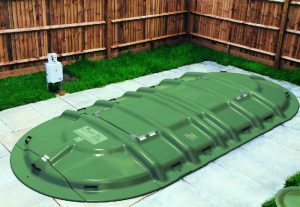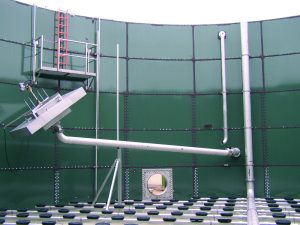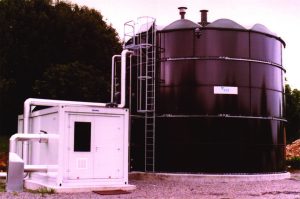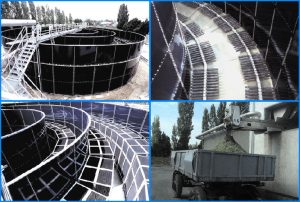Click on images below to view leaflets.
Tag Archives: Rotating Biological Contactor (RBC)
Check out the KEE profile on the UK Projects online portal
Update of expired sewage treatment facility with a KEE Rotating Biological Contactor prevents pollution to River Dene
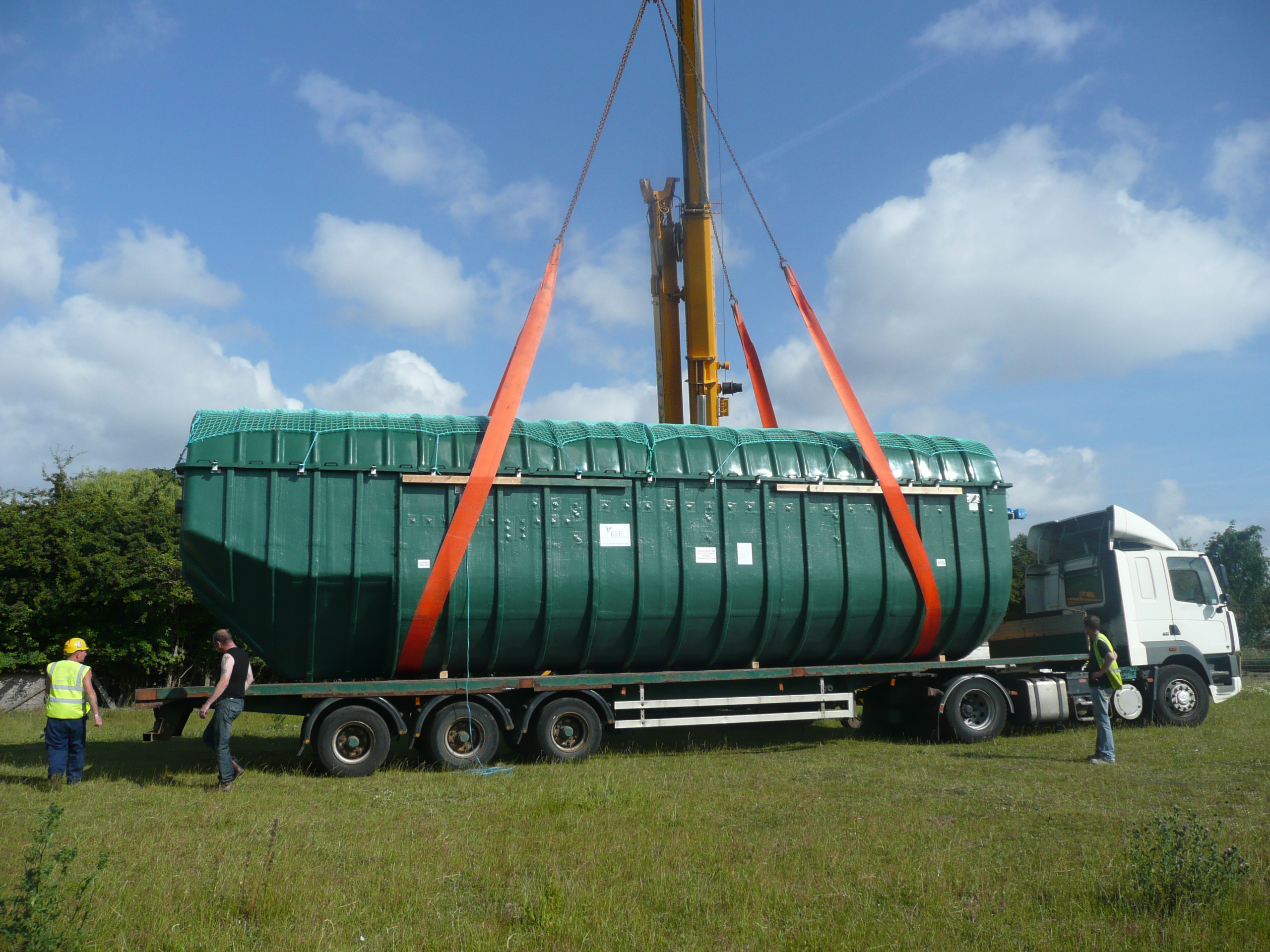
KEE RBC replacing expired Sewage Treatment Facility under Section 101a of the Water Industry Act
The picturesque village of Walton is located within the heart of Warwickshire adjacent to the River Dene. The existing privately owned sewage treatment facility located on the bank of the River Dene was life expired and would often flood, resulting in pollution to the river. An application was made to Severn Trent under Section 101a of the Water Industry Act to provide a first-time sewage connection for all 20 properties in Walton village with a population of approximately 70 people. Due to the remote location of the village, a connection onto the existing Severn Trent sewer network, either gravity sewer or a pumped solution, was not deemed feasible. Therefore, the proposal was for the installation of a new rotating biological contactor (RBC) to replace the existing treatment facility.
Full project case study, click here
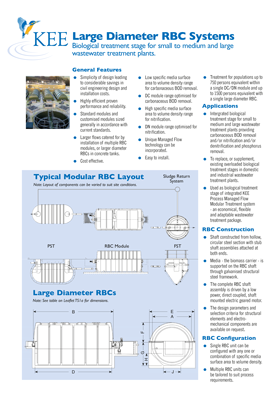
For KEE RBC information
click here
For more information on KEE technology and services please visit our website or call 01296 634500
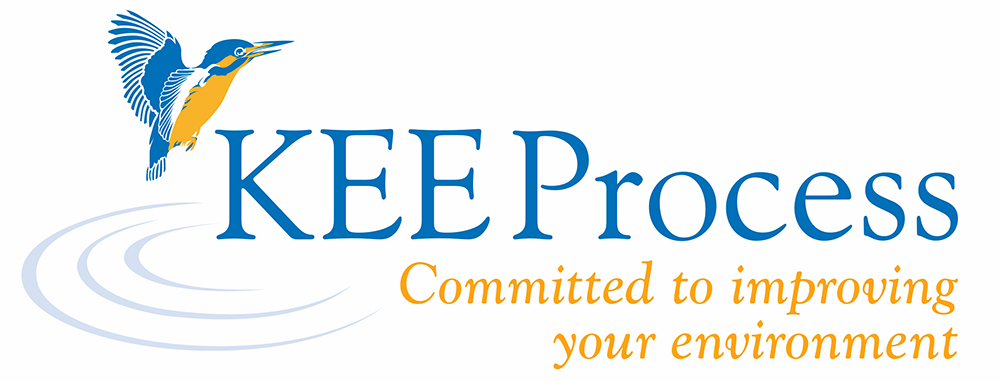

Guide for users of Packaged Wastewater Treatment Plants codes of practice has been updated
British Water are in the process of updating their
off-mains sewerage infrastructure codes of practice
https://www.britishwater.co.uk/Publications/codes-of-practice.aspx
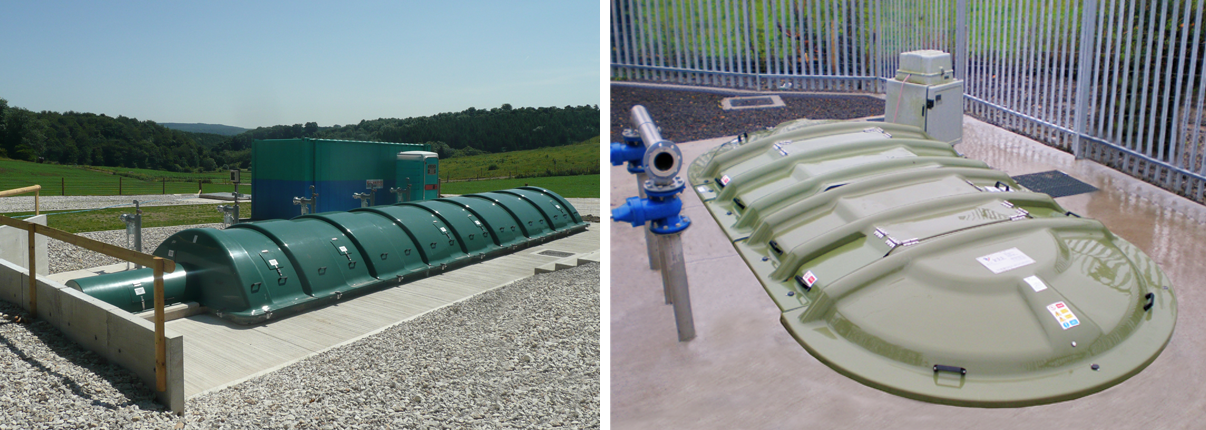
CLICK HERE: Guide for users of Packaged Wastewater Treatment Plants.
(Updated June 2020)
For full information on our KEE services and process technology, visit our WEBSITE
KEE Process exports another Wastewater Treatment Plant
KEE Process Exports
This month, KEE Process exports another Wastewater Treatment Plant. This one pictured below has been exported for installation in the Grand Cayman Islands.
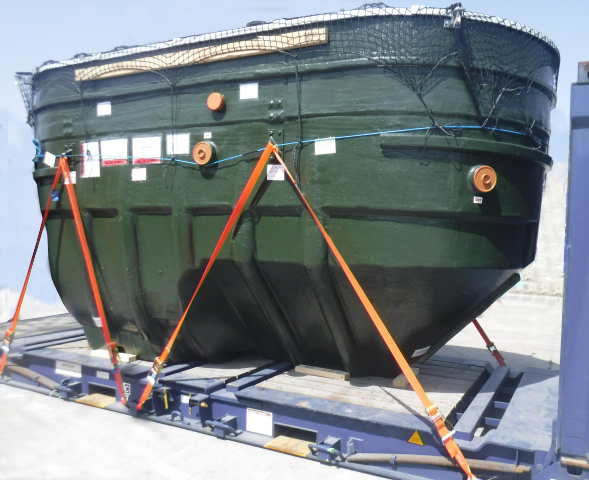
KEE Process are known worldwide as a reputable supplier of Wastewater Treatment Plants and our products are exported across the globe. Over the 60 years since the company was founded, we have also forged strong and lasting relationships with Global Agents operating in:
- FRANCE
- FINLAND
- SWEDEN
- SPAIN
- NORWAY
- CANADA
- USA
- LATIN AMERICA
- CHINA
- EAST ASIA
- EAST, WEST AND NORTH AFRICA
We would like to take this opportunity to thank all our Global Agents and customers around the world for their support and confidence in us as a supplier.
For more information on KEE exports and Global Agents, please visit our KEE Process website or contact our Head Office on 01296 634500.


Northern Ireland: Another Wastewater Treatment Process Plant successfully designed, manufactured and installed.
Newtown Crommellin – 45m3 PST + F13 RBC.
We have been supplying units for RWIP on this Northern Ireland project since 2008, and we are delighted to be part of another successful installation.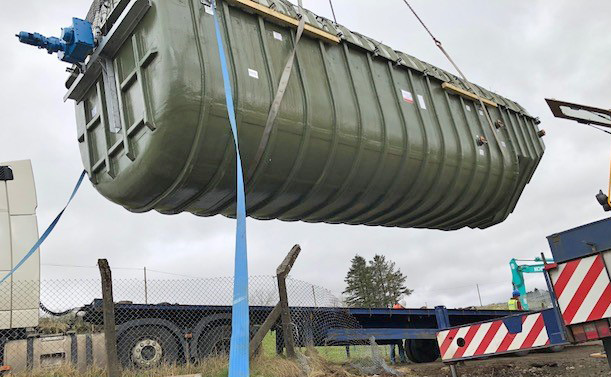
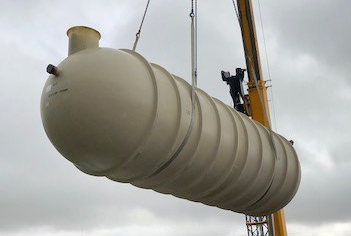
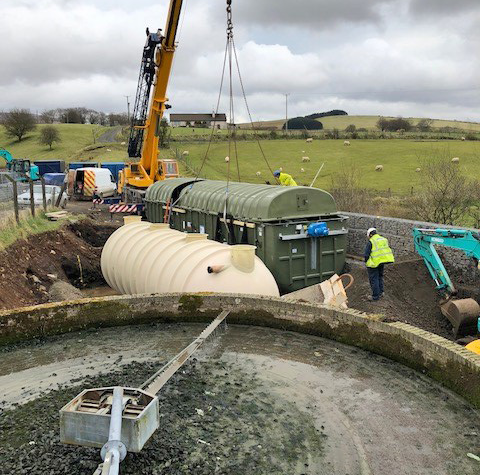
Within the KEE Group, KEE Process Limited design, manufacture and install all forms of Wastewater Treatment Technology and Processing Equipment. KEE Services Limited offer process operation, maintenance and breakdown services for all types and manufacturer makes of Wastewater Treatment equipment.
Please contact us on 01296 634 500 for more information on creating a project programme to suit your requirements.

Over the years, KEE Process Limited has produced and delivered numerous Wastewater Treatment Plant projects in Northern Ireland and Ireland, using local M & E contractors.
In the Republic of Ireland and Northern Ireland many of KEE’s projects have been using local M & E contractors who offer total supply and installation packages to clients, with fully comprehensive after sales support. Some of these projects include plant built for the following sites:
1. Large Hotel, Co. Wicklow.
The hotel already had a wastewater treatment plant but they decided to build a new 40-bedroom lodge on site and therefore needed a plant to treat all the existing flows plus the flow from the planned expansion. The main requirements of the client were:
The final effluent required Total Nitrogen and Phosphorus reduction and needed to consistently comply with the onerous discharge license of BOD < 20 mg/l, SS < 30 mg/l, COD < 80 mg/l, NH4-N < 20 mg/l, NO3-N (Nitrate Nitrogen) < 5 mg/l, Phosphate as PO4 < 12 mg/l, FOG (fat, oil and grease) < 20 mg/l and Detergent (MSAS) < 1 mg/l.
The plant was to have low operational and maintenance costs.
The plant supplier was to be able to provide complete service to include planned preventative and emergency maintenance, process and operation maintenance and effluent sampling.
The KEE’s proposal included supply, delivery, installation and commissioning of a 60m3 primary settlement tank, Module DC16 Rotating Biological Contactor and ST6 hopper bottom GRP final settlement tank. All this equipment was factory built and delivered to site ready for installation on concrete slabs.
This plant was installed and commissioned in 2003. It has operated extremely well mechanically and has delivered excellent process performance since start-up. The total electricity costs for the plant is less than EUR1,000 per annum.
2. Golf Club, Co. Cork
This was a design and build turnkey contract and KEE who were process partners in the project. The discharge license was direct to the watercourse and specified a BOD < 20 mg/l, SS < 30 mg/l, NH4-N < 20 mg/l & Phosphate as P < 2 mg/l.
KEE supplied their compact single piece NuDisc® Model 1200.
3. Golf Club, Co. Dublin
During the refurbishment of the clubhouse, on-site sewage treatment plant and disposal systems were required. The discharge license specified a BOD < 20 mg/l, SS < 30 mg/l & NH4-N < 10 mg/l, NO3-N (Nitrate Nitrogen) < 15 mg/l, Phosphate as PO4 < 5 mg/l and FOG (fat, oil and grease) < 10 mg/l.
KEE Process Ltd designed the process and supplied and installed a single-piece compact packaged plant NuDisc® F13N with inbuilt de-nitrification stage and phosphate removal stage.
This contract also included the design and installation of an inlet pumping station and a sub-surface percolation area.
4. County Council, Ireland
This was an installation for a municipal treatment works for a Southern Ireland County Council for 1000 PE. The flow to the works are combined with surface water and municipal wastewater with a discharge license for BOD < 20 mg/l and SS < 30 mg/l.
KEE supplied their packaged modular treatment system and the contractor led the contract for installation and commissioning.
For more information on our Wastewater Treatment Technologies, please phone on 01296 634500 or visit our KEE Process Website.
Private Residential Golfing Community in New York State Selects KEE Process Managed Flow® Wastewater Treatment Process
Bristol Harbour is a private residential golfing community in the Western Finger Lakes of New York State, USA.
Having experienced ongoing problems with their existing wastewater treatment plant, the community approached KEE Process Limited’s North American partner, Waste Water Solutions International Inc., for help.
After suffering regular mechanical failures, deviations in effluent performance and high operating costs, the community recognised the need to upgrade their aeration plant. The new system would also need to cope with the planned expansion of the development and meet the State Law’s stringent treatment requirements.
The KEE Process Managed Flow® Process was selected because of its ability to continually produce high quality effluent and its low operator costs and maintenance. The system was also ideal for the site’s limited space and environmentally sensitive location.
To provide flexibility two streams were installed. The technology chosen included:
- A balancing tank
- KEE Process Managed Flow Rotating Biological Contactor (RBC) – Model DN-19-S
- KEE Process Final Settlement Tank (Model ST9) with automatic pump assisted sludge return system and gravity sand filter with backwash capability.
This technology was designed and specified to provide for the current and future expansion of the community.
The KEE Process Managed Flow RBC Model DN-19-S and a KEE Process Final Settlement Tank Model ST9 with automatic pump assisted sludge return system and gravity sand filter with backwash capability installed at the Bristol Harbour private residential golfing community in the Western Finger Lakes of New York State, USA.
For more information on our Wastewater Treatment Technologies, please phone on 01296 634500 or visit our KEE Process Website.
Dŵr Cymru commission KEE Group to refurbish and replace a non performing RBC in small Welsh Village
A very old unreliable non performing RBC unit is refurbished by KEE
KEE were commissioned to design, build, supply and carry out all civil work, to refurbish and update a very old unit which was unreliable and not performing in a very small Welsh Village.
Within the brief, KEE had to strip all the internals and fit a new unit into the existing steel tank on site, as there was no room for digging a bigger excavation.
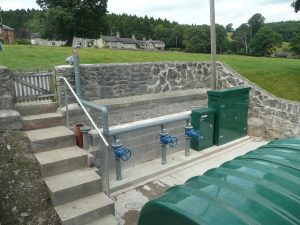 For more information on KEE Refurbishment and Updates or details on any other KEE wastewater treatment equipment and systems, please refer to our website at keegroup.com or call us on 01296 634500.
For more information on KEE Refurbishment and Updates or details on any other KEE wastewater treatment equipment and systems, please refer to our website at keegroup.com or call us on 01296 634500.
Industrial Wastewater Disposal and Treatment Options – Back to Basics – A Practical Approach from KEE Process Limited
What are the Options
Brewing, winery, soft drinks manufacture, food preparation production and packaging (baking, ready convenience meals, abattoir, meat, poultry and vegetable), dairy (milk processing, cream, cheese and yoghurt production), commercial laundries, pharmaceutical, petrochemical and many other industries are large users of water. This results in large quantities of heavily polluted wastewater for disposal.
UK Water companies and the public bodies responsible for collection, drainage and treatment of wastewater have strict controls on the quantity and the quality of industrial and trade wastewater being discharged into public sewers. Legislation supports them in this. Direct discharge to a watercourse is even stricter and is normally monitored by the National Environmental Agencies and the Environment Agency in the UK. Penalties for transgression can include prosecution, fines, financial loss and can, in some cases, prohibit operations.
Audits
It is always advisable to carry out an evaluation of the processes involved in the core business of an organisation to identify sources of wastewater. An audit would help reduce waste/wastewater and disposal costs, quantify flow rates, solids and organic loads and characterise the wastewater to provide the necessary data for analysing the available disposal options and optimise the design of any on-site treatment plant.
It is useful to be subjective when carrying out an audit to ensure that good housekeeping practices are identified to reduce unnecessary waste which would add to the costs of disposing wastewater generated on site. Process audits should be aimed at identifying the waste, excess use of water and energy. Simple actions, such as installations of energy-saving devices or taps and hose controls and careful disposal of solid waste, can produce both financial and environmental benefits. It would also help to reduce the size of an on-site treatment plant if one was planned and this would result in capital cost savings.
An audit would lead to evaluation of volumetric and organic mass loads for design purposes and would aid in characterising the nature of the waste, to optimise the design for on-site treatment plants.
Public Sewer or Watercourse
Public sewers are convenient for disposal if nearby. Quantity, strength and characteristics of the wastewater need to be considered and consented by Authorities or the Water Company in the UK. If approval is granted and the wastewater meets the criteria set, then sewer disposal would be an obvious choice, but this comes at a cost. High COD (Chemical Oxygen Demand) and suspended solids would lead to high costs in discharging to sewer and reducing these parameters could make significant savings. Partial or full onsite treatment would bring about cost savings to sewer discharge but needs justifying through quantification.
Hygiene versus Convenience
With the food processing, beverage and dairy industry, hygiene is of paramount importance. On-site wastewater treatment may be perceived by management as presenting problems although the risks are small. It is vital that the Operatives normally involved in the process part of the industry, do not need to visit the wastewater treatment plant and the risks to main operation therefore are contained and the operation of the wastewater plant becomes one of non-core features. This can be achieved by having the treatment plant operation undertaken by the maintenance department of the industry or independent operators such as KEE Process Limited who would provide a turnkey solution for designing, supplying, installing and operating a plant for a Client.
Treatment Options: Physical, Biochemical or Combination of Both
Where the decision to treat on-site has been made, the appropriate choice of plant has to be determined. Whether partial treatment or full treatment is installed is usually a matter of economics. A capital outlay is necessary and this must have an acceptable payback period. The treatment options available are Physical, Physical/Chemical, Biological or a combination of all or any of these.
On-site treatment could involve simple physical treatment to remove materials such as gross solids, FOG (Fat, Oil & Grease) and can include pH correction. The equipment may include manual or mechanical screens, grease separators or the newly introduced DISPERSED AIR FLOATATION which is simple, economical and extremely efficient and effective. A component of COD associated with these materials would also be removed by the physical treatment. With DISPERSED AIR FLOATATION up to 30% BOD, 50% COD, 60% TSS and over 90% FOG can be removed physically without the use of chemicals. Better performance can be achieved by using coagulant, flocculants and ploy-electrolytes. In most cases, partial treatment using DISPERSED AIR FLOATATION would achieve the reduction in pollution loads necessary to substantially reduce the cost of discharge of effluent to public sewer. The ownership costs (capital expenditure, servicing, maintenance and operation costs) associated with DISPERSED AIR FLOATATION are usually low. The benefits of cost savings in effluent disposal are high and the capital/operating cost of proving on-site partial treatment can be justified against the ownership costs. Given these benefits it may be sufficient not to invest in further onsite treatment for the effluent to be discharged into public sewer.
However, it may still be necessary or even desirable for the wastewater to be treated further for direct discharge to a watercourse or re-used for non-process operations within the industry. In such a case, full on-site treatment would often justify the capital and operations cost. Cost analysis must also take into account the valuable space required for location of the treatment plant on the core business site.
For disposal to watercourse, consent from the Environmental Regulating Authorities (the Environment Agency in the UK) will be necessary.
KEE Microfloat Unit Interior working of the Microfloat System
The full treatment options could include anaerobic fixed film technology. This is particularly suitable for high strength wastewater requiring initial partial treatment prior to sewer disposal or further aerobic treatment to produce effluent suitable for direct discharge to a watercourse. The aerobic process could include:
- Suspended Growth Activated Sludge Process options through Extended Aeration, Sequencing Batch Reactor (SBR) or Oxidation Ditch.
- Fixed Film Process through Rotating Biological Contactors (RBC), Submerged Aerated Filter (SAF).
Choosing the Treatment Option
The most suitable process selection would depend on many factors such as:
- Initial Mechanical/Electrical Capital Cost.
- Installation Cost.
- Operating Cost including on-site attendance/labour costs, energy costs, consumables and plant operation complexities. Disposal costs of physically separated pollutants e.g. FOG, TSS and sludge in case of full Biological treatment plant.
- Servicing, Spares & Maintenance Cost.
- Space and Land requirements for location of the on-site treatment plant.
All the above factors should be taken into account and a discounted cash flow calculated on a 10, 15 or a 20-year replacement cycle. This should be weighed against the cost of disposal to sewer or partial treatment followed by disposal to sewer. When evaluating the disposal costs to public sewer, it is necessary to liaise with the authorities or provider of the central wastewater treatment plant, to establish initial capital cost contribution expected and the potential annual costs associated with sewer discharge over the next 10,15 or 20 years. Armed with all this financial data, the overall cost of various disposal options should be evaluated and the financial disposal option chosen justified on a payback period or the net discounted cash flow, or the simple approach of evaluating the cost of disposing a unit volume (say 1 m3) of effluent.
With so many factors to consider, such as type of treatment, if any, the process selection for partial or full on-site treatment and cost analysis to justify the most appropriate option for disposal of the effluent, it may be beneficial to use the services of a professional. An experienced independent consultant with a wide knowledge of industrial wastewater treatment processes would be the obvious choice. Some Companies do offer a wide spectrum of process options and have the necessary experience to offer turnkey solutions using the most optimised process. Such companies may have a bias towards their own technology and process if they have a limited range of process options to offer. All this should be balanced against their ability to provide project management, process design, site civil work, mechanical/electrical erection, commissioning and more importantly on-site operation with process warranties.
The KEE Group Companies, KEE Process Limited and KEE Services Limited can offer such an option. Their technologies include physio-chemical processes (Dispersed Air Floatation, simple gravity solids and grease separators), Anaerobic Reactors (for high strength wastewaters), Fixed Film (RBC and SAF) Reactors and Suspended Growth Reactors (Activated Sludge Processes such as Extended Aeration, SBR, Oxidation Ditch, Extended Aeration followed by Ultra fine Filtration), and on-site operation of the treatment plant. KEE also have a team of experienced process engineers and project engineers capable of delivering the necessary turnkey solution to suit most customers. KEE Services offer on-site plant operation with out-of-hours emergency backup through a 24hrs manned Call Centre.
RBC Modular System
Photographs showing SAF, RBC, & SBR plants below:
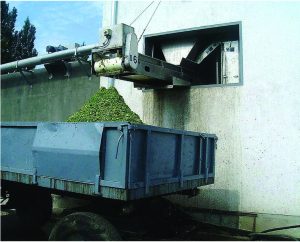
Vegetable processing wastewater screening prior to being treated in a multi-stage Submerged Aerated Filter Plant.
For more information on KEE’s latest NuDisc® RBC, please visit our website or call KEE Process on: 01296 634500
